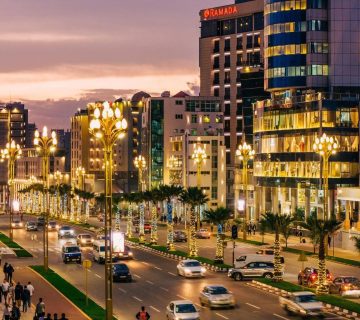Following its victory in the just concluded United Nations Security Council (UNSC) elections, Kenya is now set to join the UN’s most powerful organ as a non-permanent member for two years, 2021-2022. Kenya garnered 129 votes against Djibouti’s 62 in the second round of voting. This victory confirms Kenya’s diplomatic dexterity and influence within the international community; and as a champion of global peace and security and multilateral cooperation. Kenya is expected to be a voice for global justice, push for the reform of the UNSC and achieve a strong representation for the African continent. Particularly, Kenya should continue its legacy of supporting peace and security initiatives and ensure a lasting contribution toward ending violent conflicts and eliminating human atrocities.
This will not be the first time for Kenya at the UNSC. Previously, Kenya has served at the Council in 1972-1974 and 1997-1998. Kenya’s third candidature was informed by its past experience and ability to leverage its diplomatic strength to articulate the African agenda at the Council having been endorsed by the African Union. Kenya’s campaign was organized around a 10-point agenda that put at its core the country’s commitment to global peace and security, and multilateral cooperation within the international system. Nairobi pledged to be a strong concensus builder between various UN agencies and will seek to unite the voices of UN member states around issues of common good to achieve the sustainable development goals and the UN’s Agenda 2030. In addition, the country vowed to promote the realization of gender equality in different conflict resolution initiatives across the world.
High Moment for Foreign Policy
Kenya is joining the UNSC at a critical diplomatic moment which will serve as a test to the country’s foreign policy. First, the ongoing global pandemic is stoking up great power rivalry that will seek to take center-stage at the UNSC, with a great impact on Africa. The power struggle between Western and Eastern countries, particularly, the United States and China, but also other Western states and Russia have been building up for several years and seems to be approaching its climax. Not only does this rivalry bear serious implications for global peace and security, but it also challenges the very fabric of multilateralism upon which the UNSC is founded. Kenya will be thrown into a diplomatic dilemma, given its warm relationship with both the USA and China – countries holding permanent positions at the UNSC. Nairobi, therefore, must carefully straddle these divisions and ensure that they do not texture its foreign policy. There is need for Nairobi to adopt a nuanced and mature diplomatic posture, one that will be able to remain unfettered by partisan politics and alliances.
The pandemic also poses a great health and economic threat to Africa, which will require strategic diplomatic manoeuvres and influence, to secure international support and cooperation in the coming years. However, this is happening at a time when the global environment is characterized by a growing tendency to retreat to nationalistic and protectionist politics. As such, Kenya must use this position to maximize her access, and influence in defending the common good and welfare of global citizens. This will enhance Kenya’s regional and global standing.
Second, Kenya is embroiled in complex diplomatic challenges in the region. The unresolved dispute with Somalia over the maritime boundary covering up to about 100,000 square kilometers is a critical matter that Kenya should carefully seek a resolution. Nairobi prefers a negotiated, out-of-court settlement of the matter while Somalia is keen on a judicial determination. With the UNSC membership, Nairobi can now more boldly champion for a diplomatic recourse targeted at finding a mutually binding resolution to the dispute.
Kenya is also grappling with growing tepid diplomatic relations with its neighbors, in particular, Ethiopia and Tanzania, which may undermine regional cooperation in maintaining peace and security. Eastern Africa, and the African continent at large remain a constant agenda at the UNSC because of the prevalence of violent conflicts. Not only does Kenya’s membership at the UNSC require a strong regional backing exemplified by the AU’S endorsement, but running a productive tenure – focused on finding solutions to some of the intractable conflicts on the continent – will also mean that Nairobi must work towards achieving regional unity and mutual trust with its neighbors.
The Role Kenya Should Play
As pledged during the campaigns, Kenya will focus its third term on a raft of issues organized around the 10-point agenda. These issues center broadly on Kenya’s commitment to humanitarian action; justice, human rights and democracy; sustainable development and youth empowerment; climate change action, and regional cooperation nested around achieving regional peace and security. Thus, Kenya should magnificently expedite its role as the representative of Africa and defend the continent’s position as a global player. More importantly, Kenya should provide fresh impetus in pushing for reforms and equality at the UNSC; including pushing for a permanent seat for Africa.
Finally, Kenya should use this opportunity to fortify its foreign policy and increase her global relevance on issues of democracy and human rights. As a strong democracy in Eastern and Central Africa, the Security Council membership is a good opportunity for Kenya to re-engineer its foreign policy into becoming a regional crusader for the respect of human rights. Enjoining the momentum from the recent wave of protests against racial injustice in the western world but also in China, Kenya should use its UNSC membership to seek redress to systemic injustices and violations human rights which have been instrumental in driving intrastate conflicts and violence both in Africa and elsewhere in the world.
Otieno Joel is a Research Assistant at the HORN Institute.
Photo: A representational image of a previous United Nations Security Council meeting (Photo Credit: Commons/The Print)



